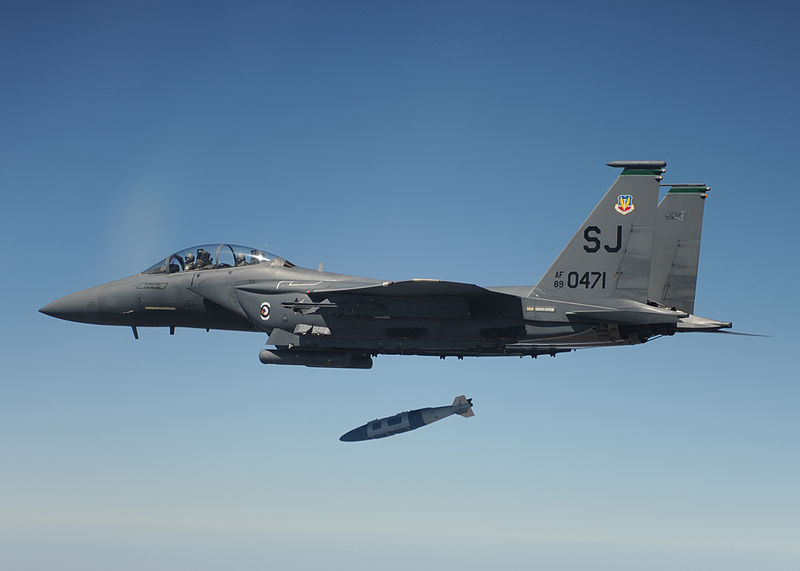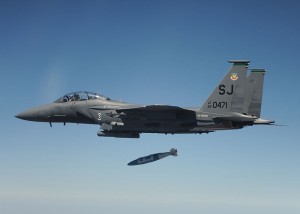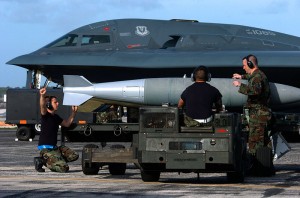
Four Reasons why the United States Should Not Attack Iran: Part II
Continuing this four part series, part two describes how an attack on Iran coupled with Iranian retaliation in the straight would be bad for the United State’s economic recovery.
Proponents of an American or Israeli strike against Iran’s nuclear facilities tend to discount the repercussions to oil production or shipping in the Arabian Gulf and Strait of Hormuz. Some believe that any possible jump in oil prices in the wake of an attack is of no concern since Saudi Arabia is prepared to cushion any shock by increasing their output. However, this belief is built on an artificially narrow idea that Iran will not retaliate against oil interests if attacked and this idea that Iran will not retaliate against oil interests can only lead strike proponents to one possible outcome where oil prices will not be greatly affected.
 Unfortunately, the situation with Iran is not as cut and dry; and as this recent Foreign Policy article pointed out this week, it is too difficult to predict with any accuracy what exactly the Iranians would do if attacked. Iran’s possible responses are not as simple as no response or full closing of the Strait as proponents would argue because they are ignoring the wide range of retaliatory options available to the Iranian Republic.
Unfortunately, the situation with Iran is not as cut and dry; and as this recent Foreign Policy article pointed out this week, it is too difficult to predict with any accuracy what exactly the Iranians would do if attacked. Iran’s possible responses are not as simple as no response or full closing of the Strait as proponents would argue because they are ignoring the wide range of retaliatory options available to the Iranian Republic.
The Iranians have four weapons in their arsenal to use for possible retaliation against oil production and transport, fast attack and speed boats, anti-ship missiles, naval mines, and sabotage operations. Each weapon and the targets in which they are used against can both affect oil flow and oil production, leading to not only a speculation shock (which underpins the strike proponents’ arguments) but to a supply shock as well.
Iran could use IRGC or Quds Force operatives to sabotage or destroy Iraqi or Saudi oil production or refining capabilities. This is not outside the realm of possibility; Iranian influence is very strong in the Southern parts of Iraq, where the oil terminals are located. Iran could also attack non-Iranian oil tankers in the Strait or Gulf with small attack boats with short range anti-ship missiles or with mobile, land-based missiles. Iran may launch missiles only occasionally, maybe once or twice per day, or every other day, posing a threat to commercial vessels attempting to traverse the strait.
If shipping companies and insurers believed that large areas of the channels and surrounding waterways were in range of active Iranian anti-ship missile batteries insurance premiums would skyrocket. And if the production or shipment oil was disrupted because of sabotage or missile attack, supply would decrease. All of these possible retaliatory options would involve higher oil prices or reduced production, leading to increased oil prices.
 Once a wider frame of options for possible Iranian retaliation is established, it is easy to see that the prediction, based on the belief that Iran will not attack the Strait and that oil prices can be managed by spare Saudi capacity is ignoring other options available to Iran is too narrow to be of any use. But in the end, no one can predict what Iran would do if attacked, they may do nothing, and they may mine the Strait. So for strike proponents’ to say with certainty that Iran will not respond and build a case upon that assertion ignores the other potential consequences that would have an impact on the United States.
Once a wider frame of options for possible Iranian retaliation is established, it is easy to see that the prediction, based on the belief that Iran will not attack the Strait and that oil prices can be managed by spare Saudi capacity is ignoring other options available to Iran is too narrow to be of any use. But in the end, no one can predict what Iran would do if attacked, they may do nothing, and they may mine the Strait. So for strike proponents’ to say with certainty that Iran will not respond and build a case upon that assertion ignores the other potential consequences that would have an impact on the United States.
The point here is not to contest the economic implications of higher oil prices, but to reframe the argument by including more than one viewpoint about how Iran could respond in the event of an attack. By adding these additional viewpoints, and the higher oil prices attached to them, it is clear that there is not just one retaliatory option for Iran after a strike.







… [Trackback]…
[…] Informations on that Topic: americansecurityproject.org/blog/2012/four-reasons-why-the-united-states-should-not-attack-iran-part-1-2/ […]…
Lets not forget what two home grown sniper terrorist did on the eastern United states. They drove around sniping people at gas stations and supermarkets. Two little americans in the back of a chevy cause panic through out the eastern seaboard. Think what the sleeper cells now in the U.S. could do as trained terrorists. They could bring the retaliation home to America as every housewife looks over her shoulder at the gas station or shoppping center. The posibilities are endless.